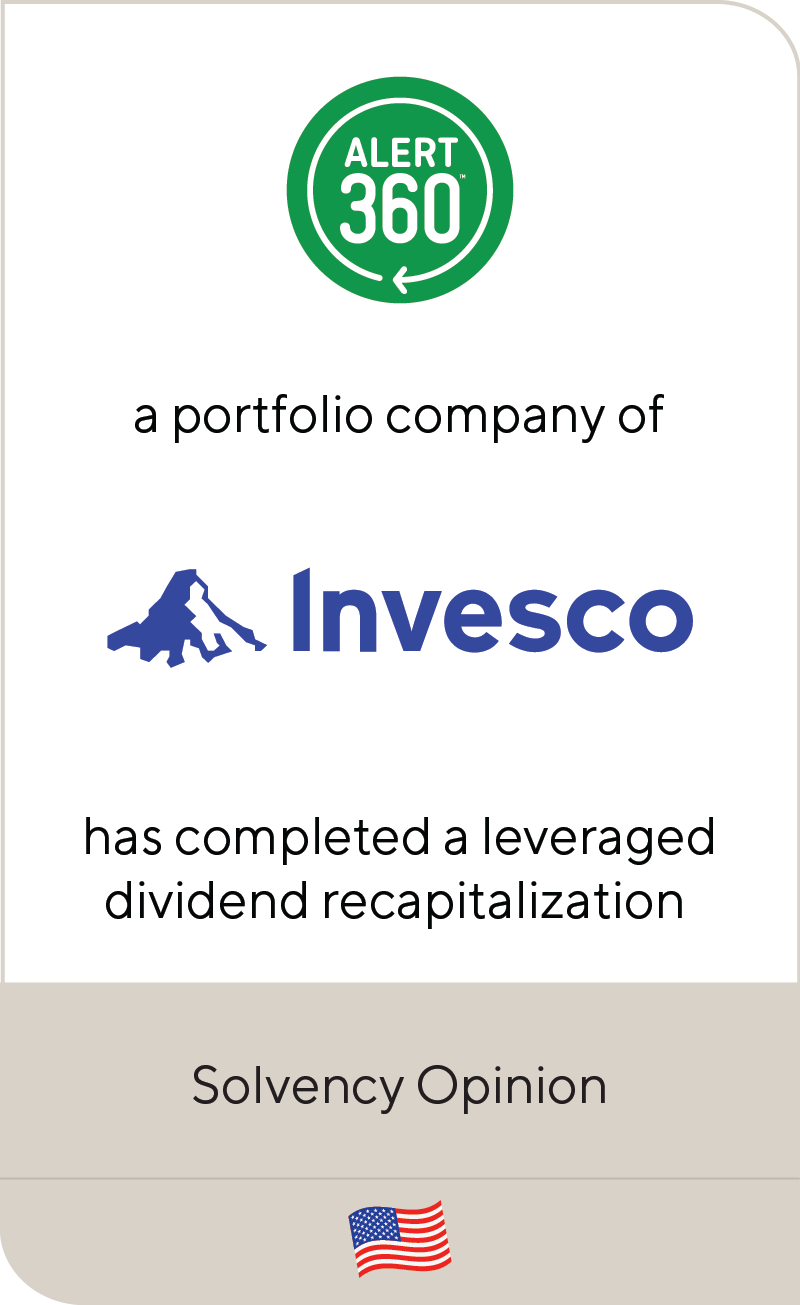Lincoln Private Market Index Gains Ground Amid Stable Private Company Growth
Aug 2023
Although topline growth has slowed, private companies continue to achieve increased earnings
The Lincoln Private Market Index (LPMI), the only index that tracks changes in the enterprise value of U.S. privately held companies, increased by 2.3% during the second quarter of 2023. The increase in the LPMI was less than the S&P 500, which grew 8.0%; however, the increase in the S&P 500 was primarily driven by the top five largest companies. Excluding these companies, the S&P 500 only grew 4.2%, more closely aligning with the LPMI’s growth. Unlike the S&P 500, the LPMI’s growth was primarily a function of performance growth: the average EBITDA measured by Lincoln International increased by 4.5%, whereas the average EBITDA of companies in the S&P 500 was stable, indicating that S&P 500 growth was primarily fueled by multiple expansion.
Beginning this quarter, the LPMI has been disaggregated into categories based on EBITDA size. The size categories are broken down as follows: $0 to $20 million, $20 to $50 million and $50 to $250 million of 12 months trailing EBITDA. Lincoln observed that over the last quarter, performance among the size categories has been relatively consistent; however, the drivers of such changes have varied, with larger companies being more driven by multiple movement (albeit still to a lesser degree relative to EBITDA growth). Since the index’s inception, large companies have tended to experience higher growth. The total annualized growth of the categories since the beginning of 2014 was 6.5%, 7.6% and 8.1% in ascending size order.
“In both certain and uncertain times, fundamental performance of private businesses continues to be the beacon for private market valuations,” said Steve Kaplan, Neubauer Distinguished Service Professor of Entrepreneurship and Finance at the University of Chicago Booth School of Business, who assists and advises Lincoln on the LPMI. “Whether big or small, earnings growth has been the primary driver of performance, but it is interesting how larger companies have behaved more similarly to those in the public markets and been more impacted by multiple movement.”
While Revenue Growth Slowed, Earnings Have Held Up
The magnitude of LTM revenue growth decreased slightly from 11.8% in Q1 to 10.5% in Q2, as only 77% of constituent companies experienced year-over-year revenue growth, the lowest percentage since Q4 2021. While slowing revenue growth signals diminishing demand as well as a slowdown in incremental price increases popular in 2022, private markets sustained double-digit revenue growth for the last six quarters, well above the pre-2020 average of 7.0%. However, only 60% of private companies experienced EBITDA growth in Q2, similar to Q1, indicating that private companies continue to grow earnings amid slowing demand.
“The private markets are beginning to change course,” said Ron Kahn, Managing Director and co-head of Lincoln’s Valuations & Opinions Group. “Private market participants have reaped the benefits of double-digit revenue growth for nearly two years, even while being impacted by margin compression. It now appears that revenue gains may have reached their peak, albeit earnings growth is still healthy.”
Opportunities Ahead for Private Markets
In measuring performance, one must consider historical performance, but also performance against expectations. While year-to-date revenue came in 0.5% behind budget on average, year-to-date EBITDA outperformed budget by 2.5%, further demonstrating sponsors’ effectiveness at managing costs despite slowing demand.
Amid this resilient performance, buyout activity in Q2 continued to remain below record highs in 2021 as a result of macroeconomic headwinds and increased interest rates. While the slowdown in transaction volumes in the private markets has been well documented, better days may be on the horizon. Based on a survey conducted by Lincoln in the second quarter of 2023, 82% of private market investment professionals expect transaction activity to return to normal levels by the first half of 2024. This return to normalcy could be further accelerated should these positive performance trends persist.
Private Credit Values Increase Along with a Lower Observed Default Rate, but Is There More to the Story?
The Lincoln Senior Debt Index (LSDI) ) increased moderately, with the average fair value of loans moving upward to 96.9% in Q2, from 96.3% in the prior quarter. Surprisingly, covenant defaults, on a size-weighted basis, also trended positively, decreasing from 4.5% in Q1 to 4.2% in Q2 as measured by Lincoln’s proprietary private market database.
This somewhat surprising decrease in defaults may be explained by Lincoln’s observation of more than 425 amendments executed in 2023, or almost 15% of all companies that Lincoln tracks. This demonstrates that borrowers and lenders anticipated defaults, which primarily resulted not from declining earnings but from increases in interest rates, and proactively addressed the issue by amending the loan documents. Lincoln also noted that, of these amendments, 31% had sponsors injecting equity while 38% had increases in interest spreads (33% of which included some payment-in-kind interest).
On the flip side, fixed charge coverage continues to tick down as the full-year impact of rising rates was further reflected in the financial statements of borrowers. Fixed charge coverage clocked in at 1.13x in Q2, down from 1.22x in Q1. Interestingly, when sensitizing fixed charge coverage for SOFR of 5.5% for a full year, fixed charge coverage would have been 1.04x, which is consistent with the result in Q1. However, companies are proactively stabilizing fixed charge coverage by decreasing capital expenditures.
“The first half of 2023 showcased one of the key aspects of the private markets: the importance of relationships,” noted Kahn. “At first glance, one would think the persistent rising rate environment would result in a meaningful uptick in defaults and distress, but lenders and sponsors have proactively mitigated these issues before they occurred.”
About the Lincoln Private Market Index & Lincoln Senior Debt Index
The LPMI is the only index that tracks changes in the enterprise value of U.S. privately held companies—primarily those owned by private equity (PE) firms. With the LPMI, PE firms and other investors can benchmark private companies’ performance against their peers and the public markets.
This index is differentiated from other indices as it (1) tracks enterprise values of private companies over time, (2) is based on valuations rather than executive surveys and (3) covers a wide sampling of companies across a range of PE firms’ portfolios.
The LPMI seeks to measure the variation in private companies’ enterprise values by analyzing the aggregate change in company earnings as well as the prevailing market multiples for approximately 1,400 private companies, each generating less than $250 million in annual earnings. The index is calculated using anonymized data on an aggregated basis by Lincoln’s Valuations & Opinions Group, which has distinctive insights into the financial performance of thousands of portfolio investments of financial sponsors, business development companies and private debt funds.
The methodology was determined by Lincoln in collaboration with Professors Steven Kaplan and Michael Minnis of the University of Chicago Booth School of Business. While other indices track changes to a company’s revenue or earnings, the LPMI is different in that it tracks the total value of these companies. Significantly, the large number of private companies used to create the LPMI helps ensure that the confidentiality of all company-specific information used in the index is maintained.
Further, in 2020, Lincoln launched the LSDI which provides insight into the direct lending market as a fair value index tracking the total return, price, spread and yield to maturity of direct lending securities. The index is developed using much of the same data as the LPMI and the methodology was determined by Lincoln in collaboration with Professor Pietro Veronesi of the University of Chicago Booth School of Business.
-
IMPORTANT DISCLOSURE
- The Lincoln Private Market Index (LPMI), the only index that tracks changes in the enterprise value of U.S. privately held companies, increased by 2.3% during the second quarter of 2023.
- Click here to view the full Q2 2023 Lincoln Private Market Index.
- Sign up to receive Lincoln's perspectives
Important Disclosure
The Lincoln Private Market Index is an informational indicator only and does not constitute investment advice or an offer to sell or a solicitation to buy any security. It is not possible to directly invest in the Lincoln Private Market Index. Some of the statements above contain opinions based upon certain assumptions regarding the data used to create the Lincoln Private Market Index, and these opinions and assumptions may prove incorrect. Actual results could vary materially from those implied or expressed in such statements for any reason. The Lincoln Private Market Index has been created on the basis of information provided by third-party sources that are believed to be reliable, but Lincoln International has not conducted an independent verification of such information. Lincoln International makes no warranty or representation as to the accuracy or completeness of such third-party information.
Meet Our Senior Team in Valuations & Opinions

I find immense fulfillment in enabling clients to achieve their objectives and navigate the complexities of today's ever-changing landscape.
Chris Croft
Managing Director & Co-head of Transaction Opinions
New York
I enjoy sharing insights about market and valuation trends with my clients, while also leading a differentiated and high-touch process.
Brian Garfield
Managing Director & Head of U.S. Portfolio Valuations
New York
I enhance my clients’ decision making and governance processes by providing independent and objective financial advice in a highly responsive manner.
Chris Gregory
Managing Director & Co-head of Transaction Opinions
New York
I enjoy the opportunity to provide clients with insightful and unbiased advice that will help them make the most informed decisions possible.
Ron Kahn
Managing Director & Co-head of Valuations & Opinions
Chicago














